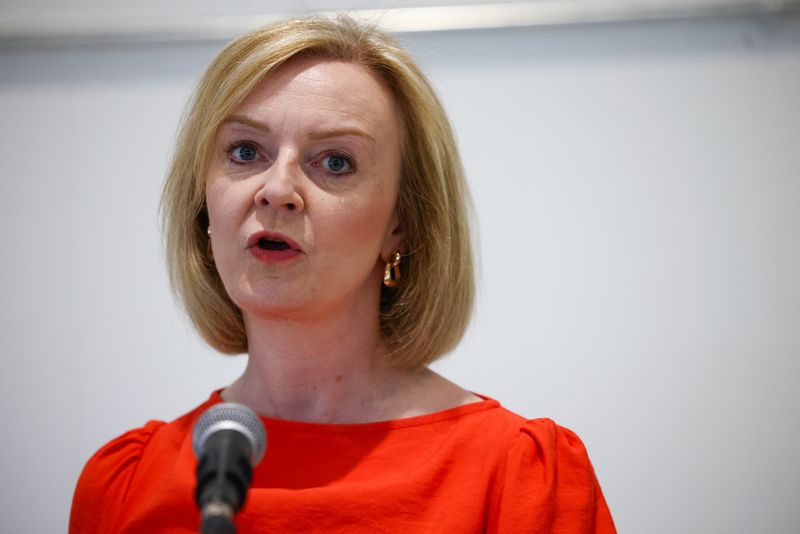By Geoffrey Smith
Investing.com -- U.K. households and businesses face a smaller, but perhaps longer-lasting, rise in their energy bills than seemed likely a couple of weeks ago.
New Prime Minister Liz Truss told the House of Commons on Thursday that she intends to set the maximum dual-fuel bill for a typical family home at 2,500 pounds ($2,880) a year for two years, starting in October. That's over 1,000 pounds less than had appeared likely after the U.K. energy regulator Ofgem's latest review of its price formula. However, it still represents an increase of more than 100% from what households were paying last winter.
"The PM has - rightly done the inevitable & capped household energy costs," said Torsten Bell, director of the Resolution Foundation, via Twitter. "It will make a huge difference but winter ahead will still be grim."
Households will still receive the 400-pound rebate as promised earlier this year by the previous government led by Boris Johnson.
In addition, Truss said, there will be a new six-month relief scheme for businesses and charities which will aim to give equivalent support. She also promised "focused support" to vulnerable industries after that scheme expires.
The government will aim to identify which sectors need support within three months, Truss added.
In all, she argued, the plans will lead to inflation being 5% lower than it would have been under Ofgem's proposals. That may take some of the pressure off the Bank of England to raise interest rates further over the coming months but, in supporting household demand, it may not address the longer term structural component of this year's inflation surge.
The yield on the interest-rate-sensitive 2-year government note fell 6 basis points to 2.94%, but the 10-Year Gilt yield rose 1 basis point to 3.04%. The pound, meanwhile, got a modest lift from the news, rising 0.3% to its highest level this week against the dollar.
Truss avoided giving much detail about how the plan will be financed, a key worry that has weighed on sterling and on U.K. government bond markets in the last month. However, she did again repeat her objection to a windfall tax on energy companies, meaning that oil majors Shell (LON:RDSa) and BP (LON:BP) look unlikely to be raided for cash. BP stock rose 1.2% in London in response to the news, while Shell stock edged down 0.1%.
In a further boost to the oil and gas industry, Truss also announced she will ease restrictions on hydraulic fracturing - or 'fracking' - in an attempt to encourage more domestic production of natural gas. One of the reasons that the current spike in energy prices is hitting the U.K. so hard is that its energy infrastructure is a legacy of a time when North Sea gas was plentiful and cheap. With the North Sea's fields now largely depleted, the U.K. has swung to being a big net importer of natural gas.
The Resolution Foundation's Bell said Truss had "hidden from the fiscal implications" of her plans.
The new Chancellor of the Exchequer, Kwasi Kwarteng, will spell out the government's plans in more detail within a month, Truss said.
